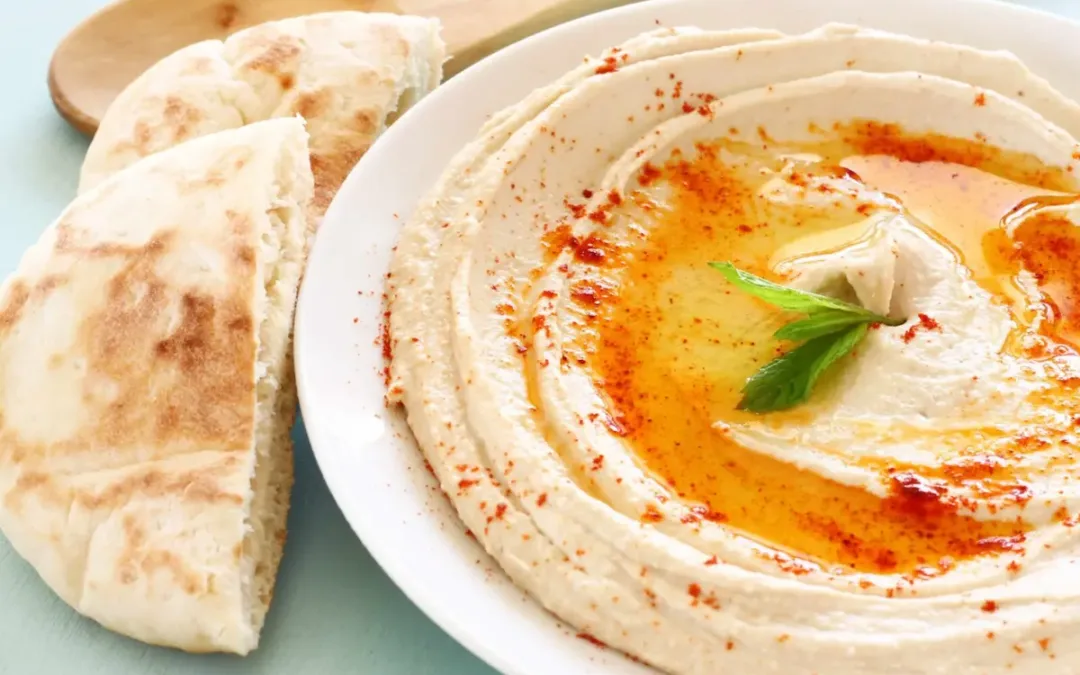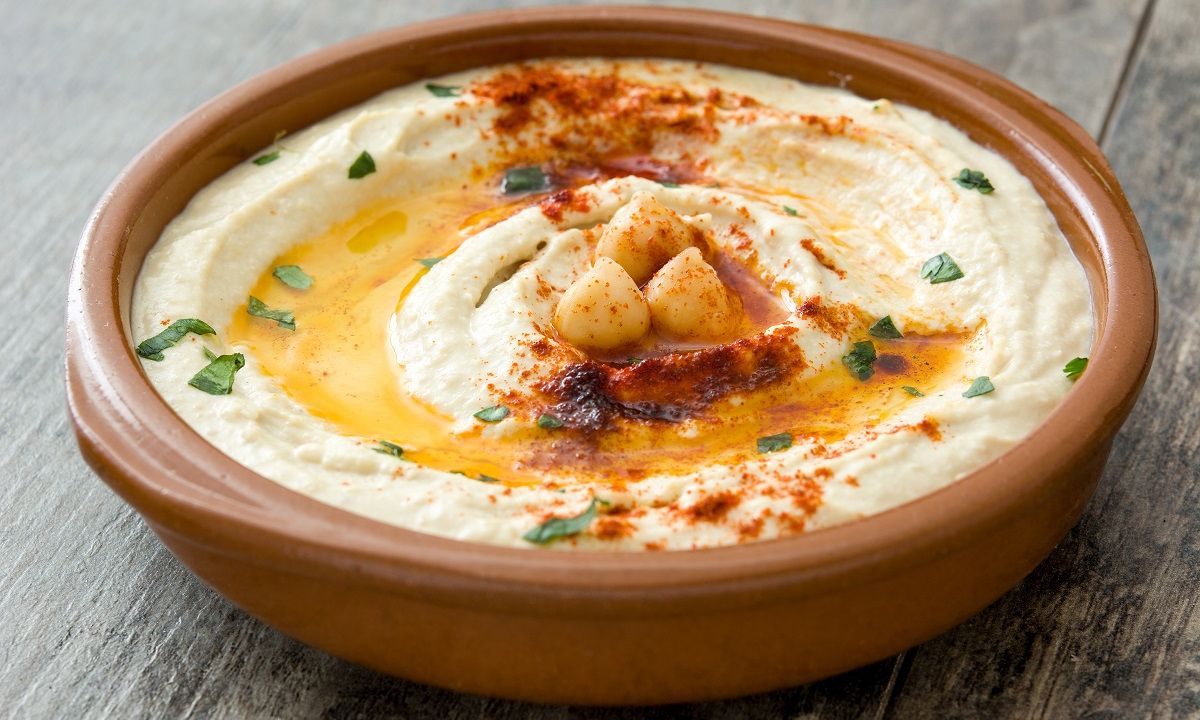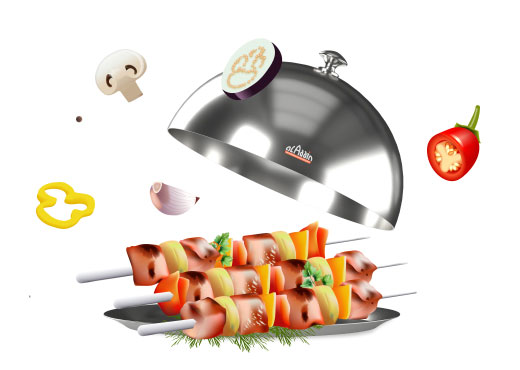Hummus is not just a dish; it’s a cultural icon in Mediterranean cuisine. This creamy, savory spread has captivated palates around the globe, making its way into the hearts of food lovers. But what is hummus, and why has it become so popular? This blog post explores the origins, ingredients, and health benefits, along with how to enjoy it in various culinary contexts.
The History of Hummus
Origins and Cultural Significance
The journey of hummus begins in the Middle East, with historical references dating back to ancient Egypt. It is a testament to the shared culinary traditions of the region, transcending modern-day borders and becoming a staple in various cultures. The significance goes beyond its ingredients; it embodies centuries of tradition, community, and the simple pleasure of gathering around food.
The Spread of Hummus Across Cultures
As traders and travelers ventured across continents, they carried the recipe for hummus with them. This spread led to its adoption and adaptation by different cultures, making it a global phenomenon. Today, it is celebrated worldwide, not only for its taste but as a symbol of culinary fusion and cultural exchange.
What Makes Hummus, Hummus?
Key Ingredients
The simplicity of the recipe lies in its ingredients: chickpeas, tahini, lemon juice, garlic, and olive oil. Each component plays a crucial role in creating the perfect balance of both flavors and textures that define hummus.
Variations Across Regions
From the addition of red peppers in some regions to the incorporation of avocado in others, its variations reflect local tastes and ingredients. These adaptations have given rise to a multitude of flavors as a result, ensuring that there’s a hummus out there for everyone.
Nutritional Profile
Health Benefits
Hummus is a nutritional powerhouse, rich in protein, fiber, and healthy fats. Not only it supports heart health and aids digestion, but it can also be a weight-management ally. Its ingredients are packed with vitamins and minerals, making it a wholesome choice for a healthy diet.
Dietary Considerations
It is naturally gluten-free, vegan, and, when made traditionally, Halal. It’s an inclusive food that fits various dietary needs. One of the facts about hummus is that you can put it on nearly everything.
Culinary Uses of Hummus
Traditional and Modern Serving Ideas
Traditionally served with pita bread or fresh vegetables, hummus is also a fantastic base for modern culinary creations. From bowls topped with grilled vegetables and proteins to hummus-based dressings, the possibilities are endless.
Pairing with Other Foods
The creamy texture and savory flavor of hummus make it an excellent complement to a wide range of dishes. It pairs beautifully with both grilled meats and vegetables. It even integrates well into some desserts. This show its versatility in both savory and sweet applications.
Making Hummus at Home
Basic Recipe
Creating it at home is a simple process that rewards you with a fresh, flavorful spread. Starting with soaked chickpeas, blend with tahini, lemon juice, and then garlic for a classic.
Tips for Perfect Hummus Every Time
Achieving the perfect consistency and flavor involves a few tricks, such as using cold water in the blending process and adjusting the tahini to taste.
Hummus at Aladdin’s Houston
Our Signature Hummus Dishes
At Aladdin’s Houston, we take pride in our hummus, offering a variety of flavors that highlight the versatility and richness of this dish. Each serving reflects our commitment to authentic Mediterranean cuisine.
Why Our Hummus Stands Out
Our hummus stands out because of our dedication to using fresh, quality ingredients and traditional preparation methods. This attention to detail ensures a memorable dining experience for every guest.
Incorporating Hummus into Your Diet
As a Snack
Hummus is an ideal snack, providing a satisfying and healthy option between meals. It’s perfect for dipping vegetables or spreading on whole-grain crackers, offering both flavor and nutrition in every bite. Instead of eating unhealthy snacks, consider the health benefits such as lowering of cholesterol, lipid, and blood pressure levels.
In Main Meals
Beyond snacking, it can be a nutritious component of main meals. It also serves as a flavorful spread in sandwiches, a protein-rich addition to salads, and a base for creative entrees.
In Lifestyle Diets
Vegan and Vegetarian
For those following vegan or vegetarian diets, hummus is a valuable source of plant-based protein and nutrients, aligning with ethical and health-conscious eating practices. Its versatility makes it an ideal component of meals, ensuring that those following a plant-based diet can enjoy varied and nutritious dishes. Aladdin’s Houston offers a range of vegan and vegetarian options featuring hummus, showcasing how it can be both a delicious and ethical choice.
Gluten-Free Options
Hummus’ naturally gluten-free composition makes it a safe and delicious choice for individuals with gluten sensitivities or celiac disease.
For those with gluten sensitivities or celiac disease, hummus offers a safe and flavorful option. Naturally gluten-free, it pairs well with various gluten-free bread, crackers, as well as vegetables. This compatibility with gluten-free eating underscores it’s role in inclusive dining, ensuring everyone can enjoy its rich flavors regardless of dietary restrictions.
The Cultural Impact
Hummus in Popular Culture
Hummus has made its mark in popular culture, appearing in films, literature, and social media. While its presence reflects its universal appeal and the growing interest in Mediterranean cuisine.
The Social Aspect of Sharing Hummus
Sharing food is a social experience, fostering connections and conversations. It also embodies the Mediterranean tradition of communal dining and the joy of sharing meals with loved ones.
FAQs
1. What is the best way to store hummus?
Keep it in an airtight container in the refrigerator to maintain its freshness and flavor.
2. Can it be frozen for later use?
Yes, it can be frozen, although it may affect the texture. Thaw in the refrigerator before serving.
3. Are there any allergens in it?
While it is generally safe, it contains sesame (tahini) and may not be suitable for individuals with sesame allergies.
4. How can I make it creamier?
For a creamier version, blend longer and consider peeling the chickpeas before blending. Also, read our article about the secret to creamy hummus.
5. What are some unexpected foods that pair well with hummus?
Beyond the usual suspects, it pairs well with sweet potatoes, hard-boiled eggs, and even certain fruits such as apples for a savory-sweet combination.
Conclusion
Hummus is more than just a dish. It’s a journey through taste, culture, and health. Its versatility together with its nutritional profile make it a staple in Mediterranean cuisine and a beloved addition to tables worldwide. Whether you’re enjoying the creamy texture of hummus from Aladdin’s Houston or making your own at home, there’s no denying the universal appeal of this exquisite spread.


